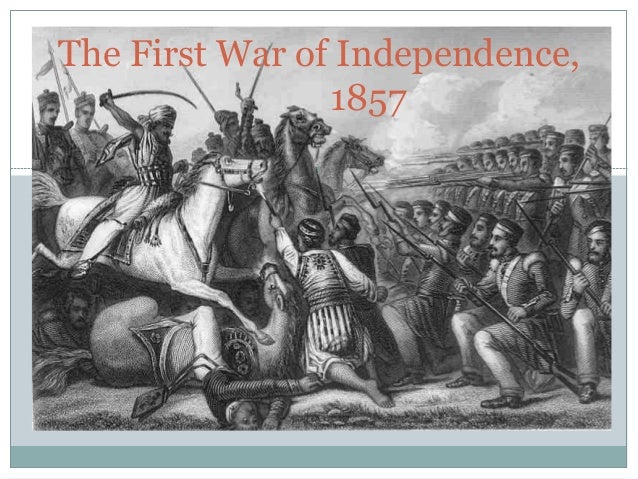
 The revolt of 1857 was
the first and the most severe outburst of anger and discontent
accumulated in the hearts of Indian people ever since the advent of
British following the Battles of Plassey and Buxar. Though the apologists of imperialism dubbed it as a 'Sepoy Mutiny', the Indian historians have praised it as the 'First War of Indian Independence'.
In the words of Nehru: "It was much more than a military mutiny and it
rapidly spread and assumed the character of a popular rebellion and The
colonial regime hurt the religious sentiments.
The revolt of 1857 was
the first and the most severe outburst of anger and discontent
accumulated in the hearts of Indian people ever since the advent of
British following the Battles of Plassey and Buxar. Though the apologists of imperialism dubbed it as a 'Sepoy Mutiny', the Indian historians have praised it as the 'First War of Indian Independence'.
In the words of Nehru: "It was much more than a military mutiny and it
rapidly spread and assumed the character of a popular rebellion and The
colonial regime hurt the religious sentiments.
Causes of the Revolt of 1857
POLITICAL CAUSES
- Lord Dalhousie annexed Punjab, Pegu and Sikkim by the right to conquest.
- Satara, Jaitpur, Sambhalpur, Baghat, Udaipur, Jhansi and Nagpur were annexed by the application of the Doctrine of Lapse.
- Awadh was the only state which was annexed on the pretext of the 'mis-governance'.
- The Regal titles of the Nawabs of Carnatic and Tanjore were abolished.
- The Pension of Peshwa Baji Rao II's adapted son called Nana Saheb was stopped.
- Lord Canning declared that the next Mughal prince would have to renounce the regal title and the ancestral Mughal palaces, this greatly angered the Muslims.
- The Indians held that the existence of all states was threatened and absorption of all states was a question of time.
- The annexation of Bhagat and Udaipur was cancelled and they were restored to their rulers.
- When Dalhousie wanted to apply Doctrine of lapse to Karauli (Rajputana), he was overruled by the Court of Directors.

MILITARY CAUSES
- Three-fifth of the recruits of the Bengal Army was drawn from Awadh and North-Western province and most of them came from high castes such as Brahmins and Rajputs who were averse to accepting that part of the army discipline which treated them on par with the low caste recruits.
- Since most of the recruits in Army were from Awadh, the annexation of Awadh on the pretext of maladministration marked the rebellion mood in the army.
- In 1856, Lord Canning's government passed the General Service Enlistment Act which declared that all future recruits for the Bengal Army would have to give an undertaking to serve anywhere even outside India.
- This was considered by the caste Hindus as defiling of their religion because going overseas was considered by the Hindus as being polluted religiously.
- By the passing of the Post Office Act of 1854, the privilege of free postage, so long enjoyed by the sepoys, was withdrawn.
- In 1856, the Government decided to replace the oldfashioned musket "Brown Bess" by the "Enfield rifle".
- The loading process of the Enfield rifle involved bringing the cartridge to the mouth and biting of the top paper with mouth.


Post a Comment
Post a Comment